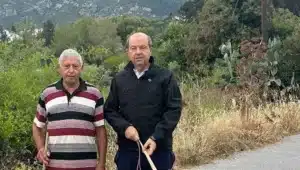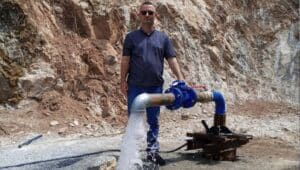
Last month it was reported that a new well had been sunk in the Çatalköy region of the Beşparmak Mountains and that it was the most productive well ever.
In a written statement, İlseven noted that Turkey’s water project, started in 2010, is set to last 30 years, leaving only 16 years remaining. He urged for radical measures to preserve existing groundwater until the project ends, stressing the importance of thinking about future generations.
He stated that no new wells should be sunk and current wells should be used minimally. He warned that draining the remaining groundwater in Beşparmak Mountains could lead to a future with dried-up water resources and a barren landscape.
“There are about 15 aquifers in Northern Cyprus“, İlseven continued, highlighting that their existence and locations have been known since the British colonial period. Key aquifers include those in Güzelyurt, Beşparmak Mountains, and along the Kyrenia coastline. Due to irresponsible drilling, significant sources like Değirmenlik Başpınarı and Lapta Başpınarı have dried up, harming wildlife.

İlseven also criticised plans to tap into the Lapta and Değirmenlik aquifers, predicting that this would lead to seawater contamination, rendering these aquifers unusable. He advocated for the rehabilitation of out-of-service aquifers and emphasised that, according to the water agreement with Turkey, domestic water needs should be met by water piped from Turkey. Instead of drilling new wells, efforts should focus on efficiently using incoming water to strengthen underground water resources.



